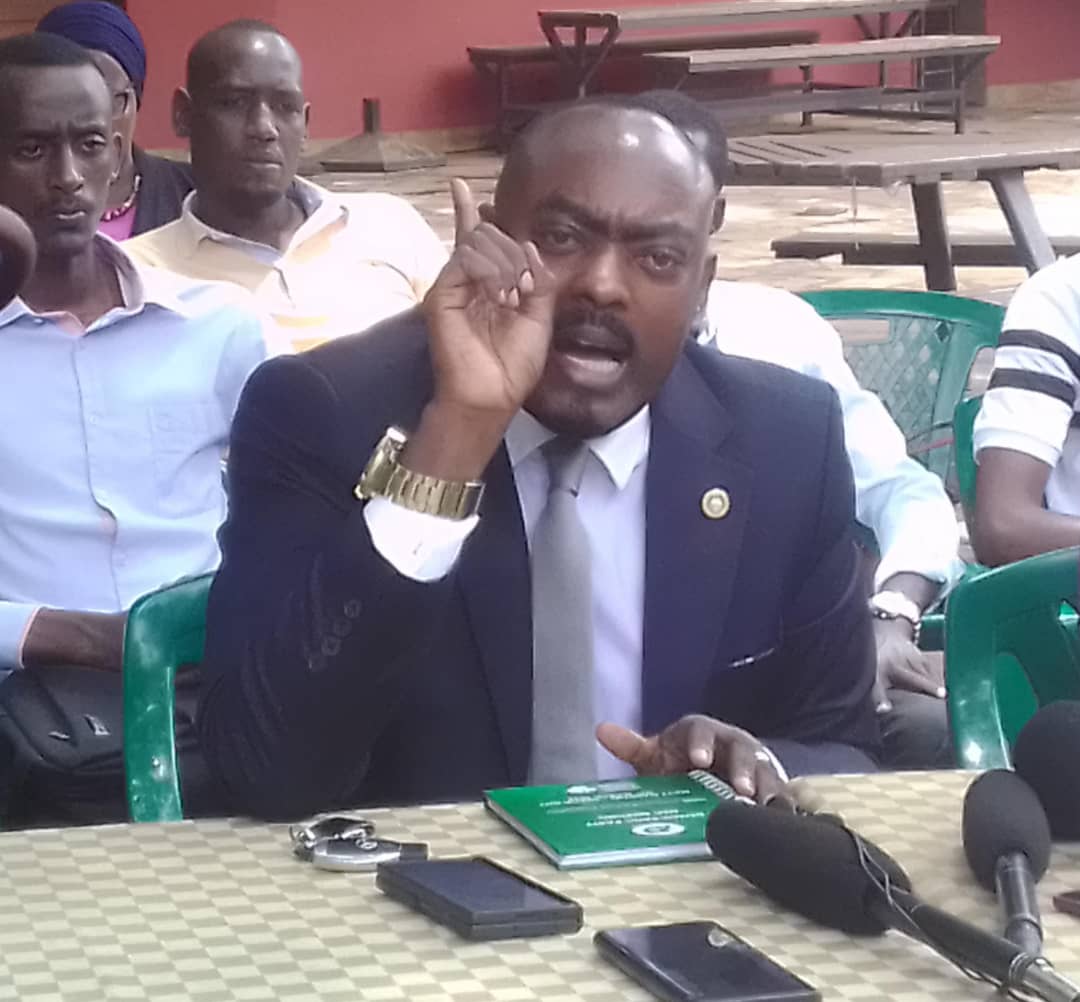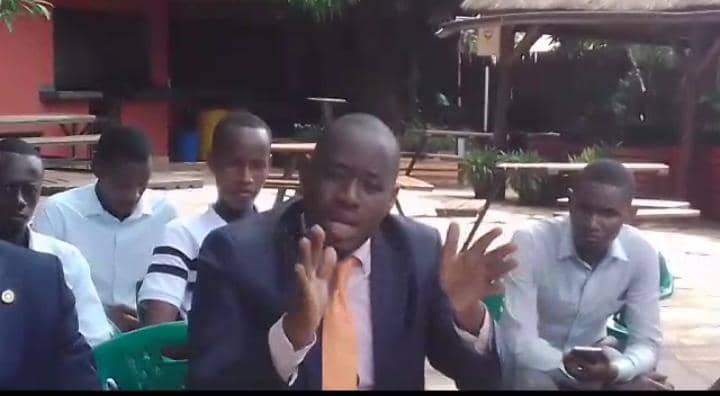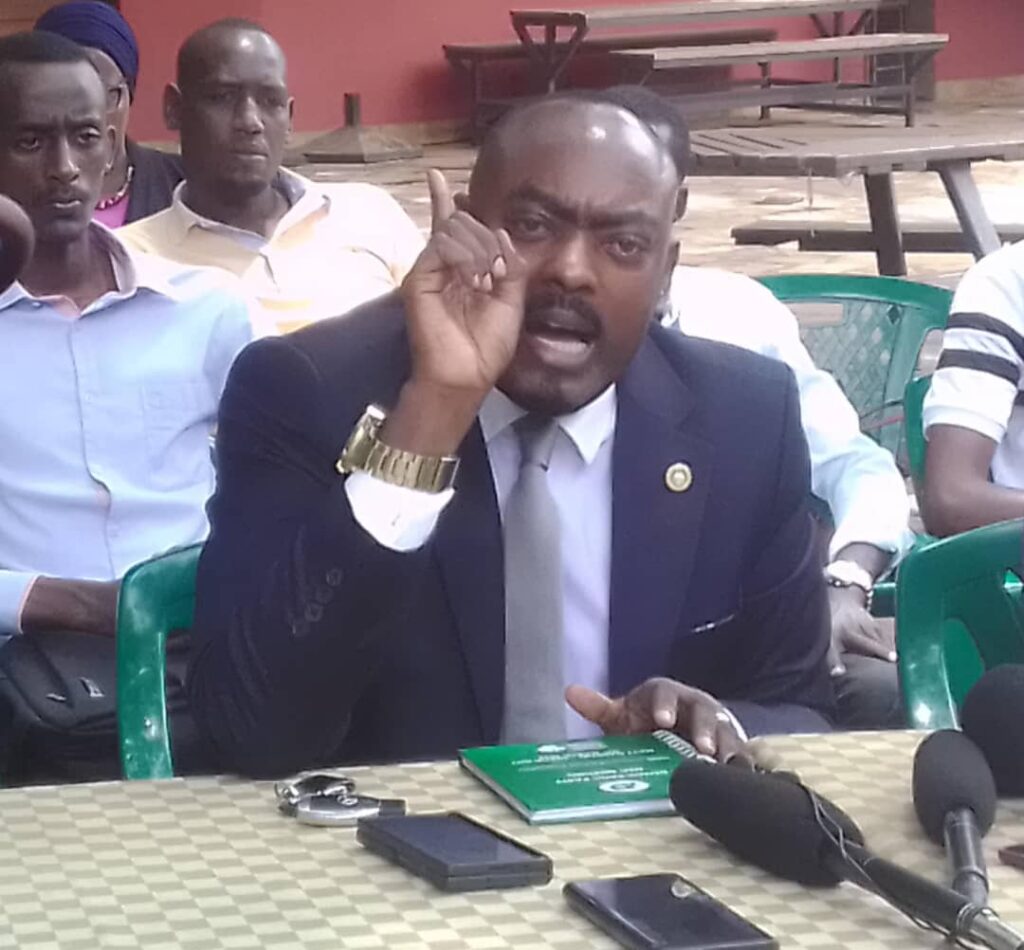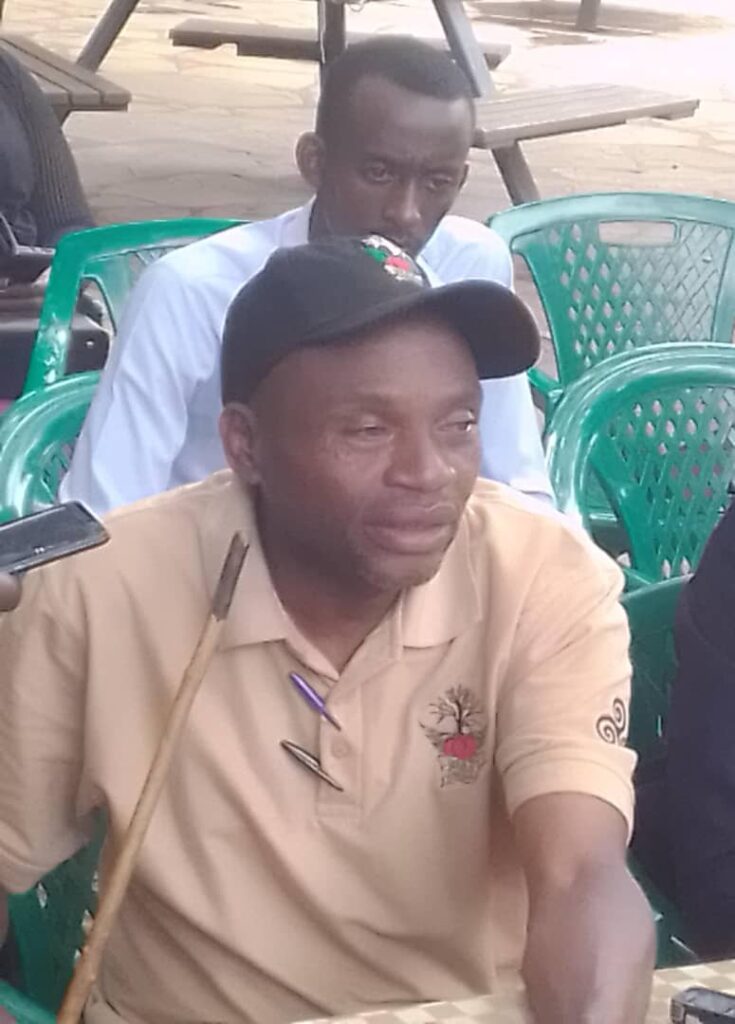
 Tiger FM
Tiger FM

 Tiger FM
Tiger FM
21 March 2025, 8:54 am
By Ronald Ssemagonja
The Banyarwanda, under their Umubano umbrella, told journalists in Kampala yesterday that they will not vote for President Museveni if he does not allow Article 10 of Uganda’s Constitution to be amended.
“We will not vote for him if he does not give us what belongs to us — the documents. We ask you journalists to inform President Museveni and the people in the Ministry of Internal Affairs, especially Mr Mundeyi, to assist us. I am a chef, and I got a job in Kenya, but I cannot go there because I have no national identity card and my passport has expired. When I went to Internal Affairs with my family, including my 80-year-old mother, I was denied the documents, even after the executive order issued by the president,” said Bakaromba Stephen, one of the Banyarwanda.
According to the Chairman of Umubano, Simon Kaitana, they had halted their nationwide signature collection from all Banyarwanda in Uganda after the president invited them and promised to address the situation. However, they are now set to resume.
“We are informing the country that we will be resuming our nationwide signature collection campaign, seeking support from all Banyarwanda born in Uganda for the amendment of Article 10 of the Constitution of the Republic of Uganda 1995 (as amended). We had made progress before the president’s invitation, believing that the executive order would resolve our issues, but it has not. Our people are still being denied crucial documents that any Ugandan citizen should possess,” he said.

Hon. Fred Mukasa Mbidde, their legal adviser, provided a detailed explanation of the president’s executive order.
“None of the 12 instructions included the amendment of Article 10. Paragraph four of the order issued by the president outlines three types of citizenship: by birth, by registration, and by naturalisation. However, the Banyarwanda with roots beyond Uganda’s borders, whose grandparents arrived before 1926, do not fall under the current law. Under this provision, and according to Article 10 of the law, they are not considered citizens of Uganda by birth. They do not fall under Article 3 either; they are not citizens by registration because they were born in Uganda. Therefore, they do not need to register,” he explained.

He continued by stating that they never registered because they held national identity cards as citizens of Uganda by birth, which are soon to expire, with some already expired. “They are not citizens of Uganda by naturalisation because they were born here. In fact, they don’t fall under any category. Under the current law, they are not citizens of Uganda. Therefore, this executive order does not address any of the issues faced by these people, and I will walk you through the executive order,” he said.
“The executive order; the president believes, ‘until we change his mind’, still considers the law to be good. The law that declares these people non-citizens, despite being born here, is still regarded as valid. The executive order is intended only to handle proof of citizenship. It is only addressing evidence. Therefore, it is very clear that any immigration official or NIRA official, in handling their duties, must strictly adhere to the provisions regarding citizenship in the 1995 Constitution. This is where the executive order immediately fails in regard to the Banyarwanda issue. The order addresses concerns of indigenous citizens located in Mpororo, Kisoro, Ntungamo, and parts of Kabale. However, all Banyarwanda in other areas cannot prove citizenship by birth,” Mbidde explained.
He confirmed that all Banyarwanda whose grandparents arrived in Uganda after 1926, according to Article 10, and those born here, are not considered citizens of Uganda. “Therefore, the Banyarwanda have once again revitalised and strengthened our efforts, and we are continuing with the request that the president accedes to the amendment of Article 10 to introduce a provision that people born in Uganda are considered Ugandans. It doesn’t matter which ethnic community they come from. This is already in place in the constitutions of Tanzania, Kenya, Rwanda, and South Africa. It must be addressed in Uganda’s constitution. It was a mistake to have omitted this in the 1995 Constitution. This has its historical basis in the British Protected Persons Act of 1934, where Uganda is listed in the schedule as one of the countries where, for all intents and purposes, anyone born in the country is a citizen. The Banyarwanda in Uganda number 8 million people,” he concluded.
